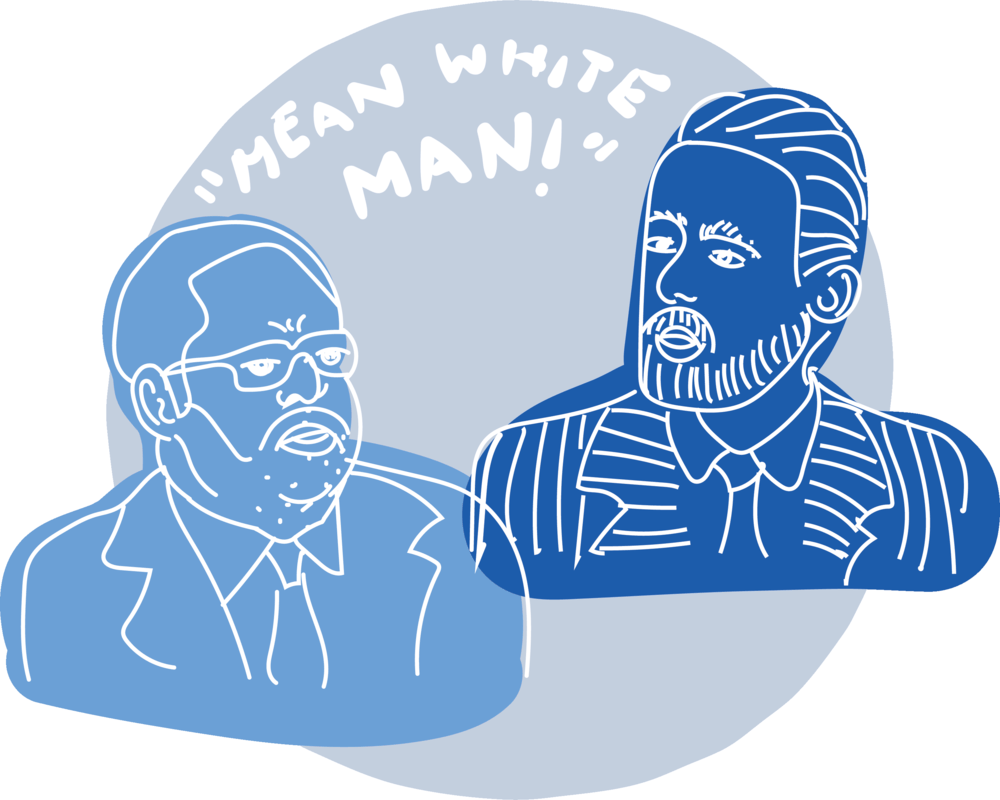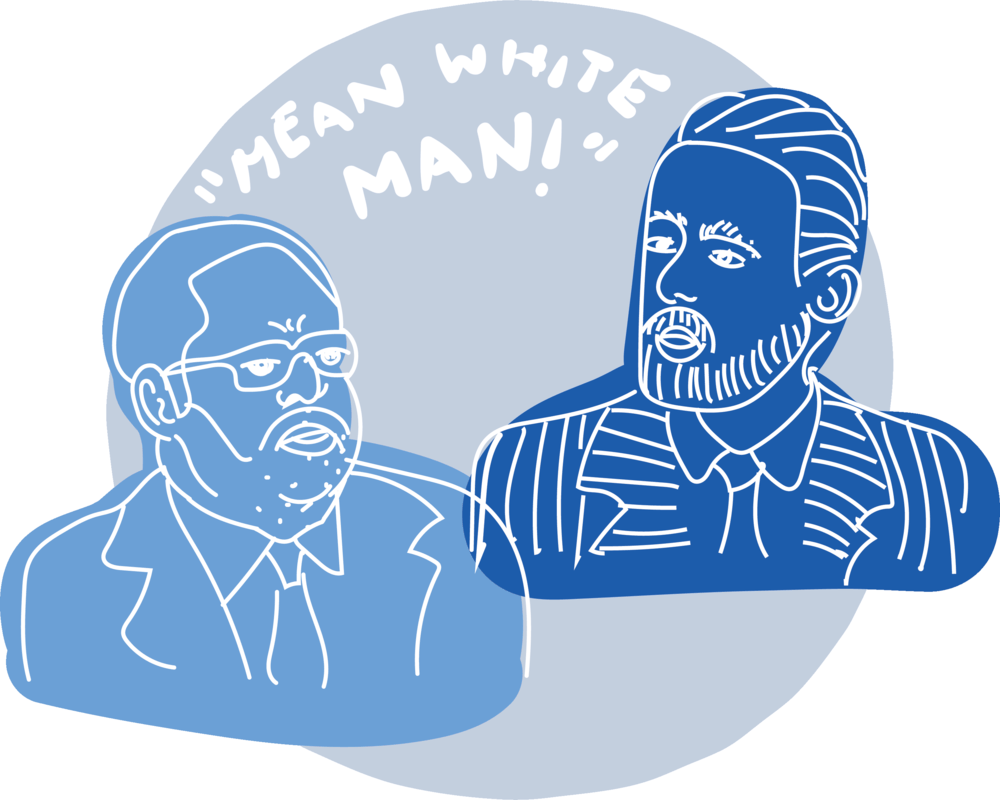A significant amount of this debate detoured around the ethics of group rights rather than individual rights. This section of the debate without question highlighted the “superstars of clash,” so-to-speak, on stage. I’m talking, of course, about the heated exchange between Michael Eric Dyson and Jordan Peterson.
Dyson argued in favour of group rights specifically for the advancement of those who identify with categories of individuals that have historically been oppressed. In other words, affirmative action. Peterson, on the other hand, argued against the implementation of group rights by claiming they would divide people on social issues rather than unite them. Peterson’s point was that advancing people through virtues in victimhood status would pit people of different genders, races, and so forth, against one another in an overly tribal “oppression Olympics” of some kind.
What Dyson gets right is his understanding of how colonialism, particularly in the West, has not in an absolute sense, but in a general one, elevated a certain demographic to having a greater chance of socio-economic autonomy. However, what’s ironic of Dyson is that he claims to hate privilege, yet so drastically wants it for the group he identifies with. Please keep in mind, it’s hard to buy into an argument for more privilege, regardless of category, when it comes from a Princeton-educated academic such as Dyson.
People like Michael Eric Dyson are why critics such as Jordan Peterson exist with growing popularity, and more people throughout the West continue to associate the left with self-righteous inward thinkers. To be fair, Dyson is a smart man with some valid points; then again, he’s a textbook example of why more people continue to roll their eyes at the left. If you need more convincing of this fitting label, feel free to find this debate online and fast-forward to the point when Dyson resorts to calling Peterson a “mean mad white man.” Say what you will of Peterson, you can’t say he resorts to name calling.
Suppose we do adopt Dyson’s desire for increased affirmative action as a form of group rights for pretty well everybody under the face of the sun except for the straight white man. Is this actually right? By the way, don’t buy into any arguments from those interested in this proposition if they disguise themselves as being interested in equality when in reality they are interested in mandated equity.
In the West, we need to start having a serious conversation that adequately contextualizes how we are in the midst of uncharted social conditions. Our current experiment of telling anybody they can be anything in society is a valuable one, but it’s also an experiment that can fail, and it wouldn’t be the first social experiment to do so. Society is a mile wide and an inch deep. Yes, society is elastic, but it also has a breaking point should it be stretched enough. We’re no longer trying to accept one group that identifies with being historically oppressed. Instead, we’re trying to accept all of them, at the same time. In theory, this sounds great. In practice, this may be the hardest exercise of tolerance the human race has ever attempted.
Predominantly throughout history, slavery has been the norm, women have been deemed inferior, and multicultural societies have been seen as a waste of time. We have zero historical reference points to go about conducting an equal society besides regarding the atrocities committed by the Soviet Union throughout the 20th century (as Peterson likes to point out).
To counter that point, just because we’ve never invented a perfect society doesn’t mean we shouldn’t try for one. I’d hate to live in a world in which we accept our faults and have no regard for history. Yet, I’d hate to live in a society in which we chase the impossible dream of being able to absolve all of history’s scars in exchange for creating new ones. Two wrongs don’t make a right.
As I pointed out in the beginning, one cannot undo past hardships, and past hardships don’t grant moral license to impose hardships as retribution. When someone breaks your heart, you have the right to be mad at them about any social or mental repercussions you’ve endured. You can confront the person who did you wrong all you want, but that’ll never undo the past. It’s within your right to let the person who wronged you to be aware of your suffering, but it’s not equally right of you to become a similar beast. The lesson being, it’s best to go forward with your scars and never sink down to the level of those who wronged you.
It’s a safe estimation to make that a majority of the straight white men in the West no longer have certain backwards social ideals that were once widely celebrated throughout the majority of our history. Regardless of who you are, be thankful we live in a saner time. So here’s a thought: let’s not exchange past civil unrest for future civil unrest. We can recognize that some of history’s past social wrongdoings have had some lasting effects on certain demographics. Although, just because we can recognize that as we venture into the future with different intentions, we don’t necessarily get licence as a society to adopt excessive guilt and allow future mandated inequalities.
At the end of the day, we live in a liberal society. That means equality of rights not equality of outcome. We can guarantee those who identify in groups of the historically oppressed equal rights to compete, but we should cautiously refrain from making it so that they have mandated handouts in the form of group rights that cement a form of privilege others of which cannot compete with. Should we further venture down the road of granting equity rather than equality through finding virtue in victimhood over historical wrongdoings that either don’t exist in the present to the same extent or not at all, we run the risk of learning nothing from our past and creating future civil unrest.

Image: Simer Haer/The Cascade


